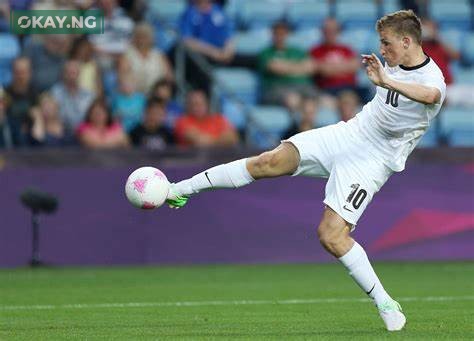In a moment of triumph tinged with anxiety, New Zealand’s All Whites clinched their third-ever World Cup berth with a decisive 3-0 victory over New Caledonia on Monday. However, the jubilant celebrations were tempered by the concerning injury to star striker and captain, Chris Wood.
The victory, securing their place alongside already qualified nations like Japan, and co-hosts the United States, Canada, and Mexico, marks a historic moment for New Zealand football. Yet, the sight of Wood hobbling off the field in the 54th minute, clutching his hip, has cast a shadow over their achievement.
“It’s not great for us losing our captain and our goalscorer,” acknowledged New Zealand’s coach, Darren Bazeley. “It was a difficult thing for the team but they came through so well.”
For many fans, the emotional rollercoaster of watching their team secure the world cup, while their key player is injured, creates a sense of bittersweet victory. We, as observers, understand the excitement of qualification, but the worry regarding the impact of Wood’s injury on the team’s future performance is palpable.
The match, held at Auckland’s Eden Park, initially saw a determined New Zealand side struggle to break down a resilient New Caledonia defense. Despite dominating possession, the All Whites were met with staunch resistance, including two dramatic goal-line clearances by the visitors.
The deadlock was finally broken in the 61st minute when veteran defender Michael Boxall headed home from a corner, scoring his first international goal. Five minutes later, Wood’s replacement, Kosta Barbarouses, added a second, chipping the ball over the advancing New Caledonia goalkeeper, Rocky Nyikeine. Substitute Eli Just sealed the victory with a close-range finish in the 80th minute.
“Once the World Cup expanded we expected this of ourselves,” Boxall stated, reflecting on the significance of the victory. “It’s not about getting there, it’s about what we do when we get there.”
Read Also: 2030 World Cup Expansion: FIFA Considers 64-Team Centenary Celebration
The expansion of the World Cup to 48 teams has provided Oceania with a direct pathway to the finals, eliminating the need for the daunting intercontinental playoffs that New Zealand has previously faced. As per FIFA regulations, the 2026 FIFA World Cup will have 48 teams, allowing more countries to participate. This expansion, while creating more opportunities, also increases the level of competition.
New Caledonia, despite the loss, will now proceed to an intercontinental playoff, keeping their World Cup dreams alive. Their journey, representing a small Pacific territory of approximately 300,000 people, adds a compelling human angle to the larger narrative.
New Zealand’s previous World Cup appearances in 1982 and 2010 yielded no victories in six matches. As they prepare for the 2026 tournament, the question remains: can they break this streak and make a significant impact on the global stage?
The immediate concern, however, revolves around the severity of Chris Wood’s injury. His form at Nottingham Forest, where he has scored 18 Premier League goals this season, underscores his importance to the All Whites. The team’s performance at the World Cup may well hinge on his fitness.
The victory, while celebrated, also serves as a stark reminder of the fragile nature of sporting success. As we revel in the achievement, we must also acknowledge the inherent risks and uncertainties that accompany the pursuit of glory.













